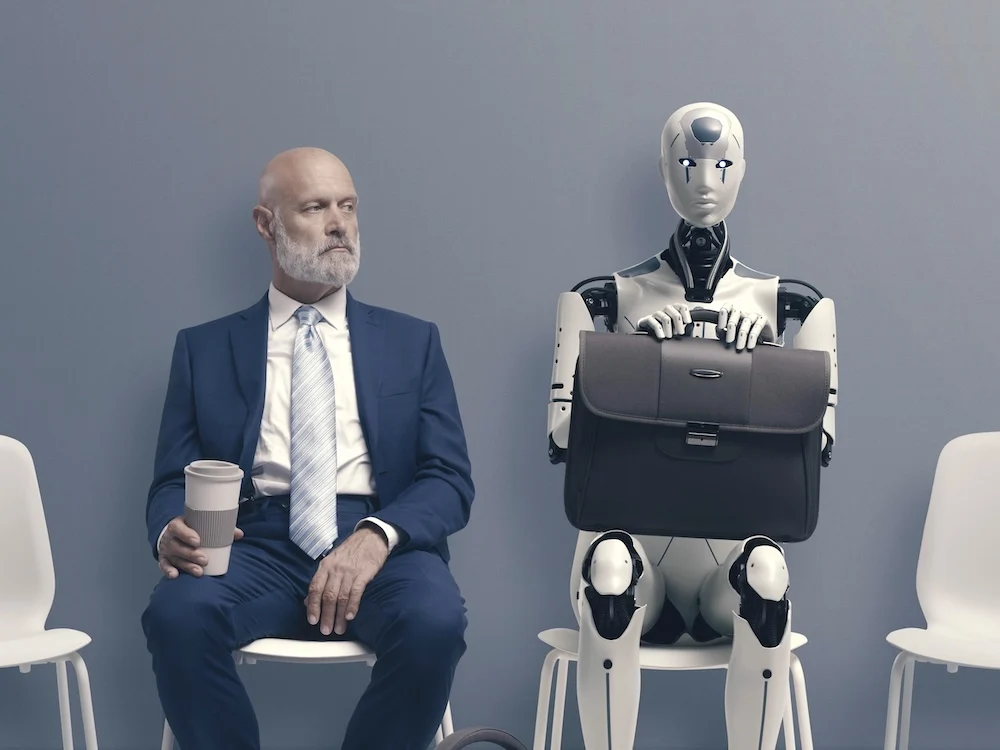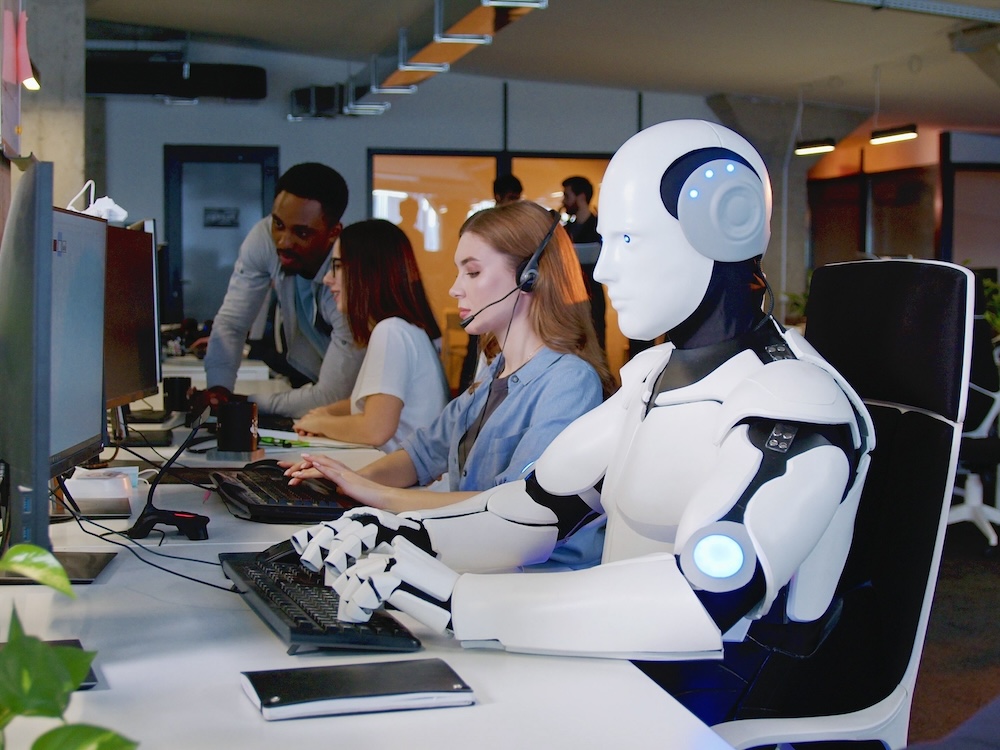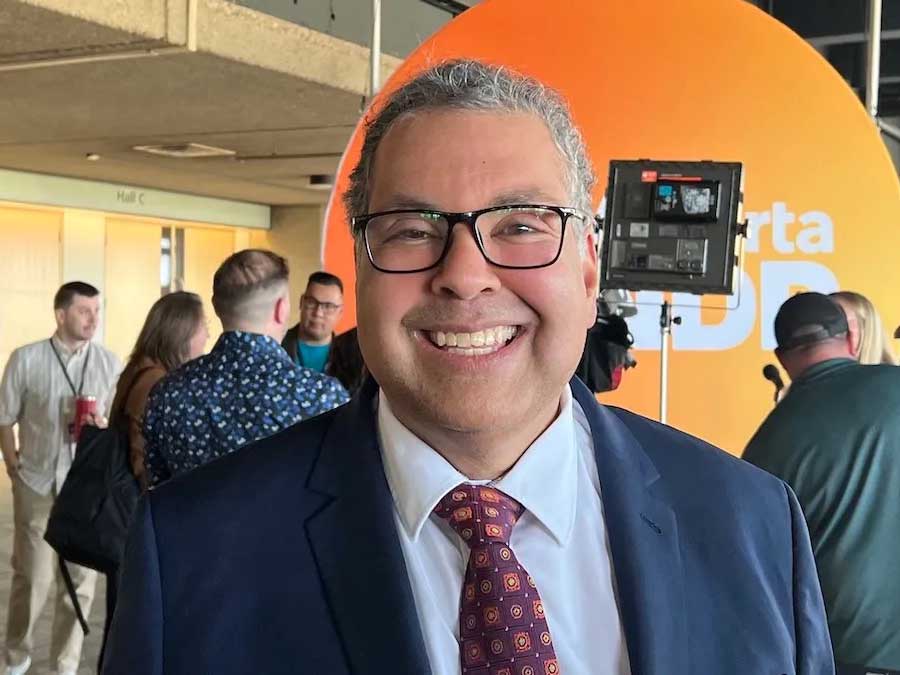
David Weitzner wants you — and your boss — to see through the AI hype.
There’s a lot of it. Dario Amodei, CEO of Anthropic, predicted last month that AI will cut half of all entry-level white-collar jobs within the next five years. Mechanize, a San Francisco-based startup, aims to use artificial intelligence tools to automate white-collar jobs.
But Weitzner, an associate professor of management at York University and a self-proclaimed “innovation optimist and hype skeptic,” isn’t convinced.
He points to predictions that the large language models — the AI model behind tools like Claude and ChatGPT — are hitting a wall. Meta’s chief AI scientist, for example, told Newsweek earlier this year he thinks large language models will soon be obsolete.
“The tech that we currently call AI is not intelligent,” Weitzner said. “Full stop.”
“Over the long term, I’m optimistic that serious AI researchers will continue to innovate and surprise us with what comes next,” Weitzner said.
“But to get there, we need Big Tech and the venture capitalists funding their ecosystem to stop hustling and get back to researching, developing and shipping innovative products that may one day be meaningfully described as intelligent.”
His book, Think Like a Human: The Power of Your Mind in an Age of AI, explores how people make decisions and reality-checks the claims for the increasingly prevalent technology.
The Tyee talked with Weitzner about the real capabilities of so-called “AI,” how it might change our job market and how to prepare for the technology.
The conversation has been edited for length and clarity.
The Tyee: How have AI advancements changed the clash between automation and labour?
David Weitzner: When computers changed how we work and make things — a revolution called “Industry 3.0” — writer Astra Taylor coined the term “fauxtomation.”
She saw a business philosophy designed to blunt workers’ demand for better treatment. Too often, the new tech did not bring real automation.
AI advancements enable fauxtomation on steroids.
Earlier this month, Builder.ai, a billion-dollar company that claimed to automate software development, collapsed because the coding was actually done by 700 workers in India.
Amazon’s technology in checkout-less grocery stores was actually the labour of 1,000 humans in India watching videos of customers checking out.
This is a whole new struggle for labour. In the past, there was no pretending that human labour wasn’t a key component of a company’s business model. The fight was for fair compensation and treatment.
Now, some companies push automation as a business model. But actual automation is too expensive and unreliable to widely deploy, so hidden, uncredited labour is needed. And secret workers are easier to exploit.
Statistics Canada released a report in September on the exposure of Canadian workers to AI “job transformation.” It found three-quarters of Canadian workers in white-collar sectors could be replaced by AI. What was your reaction to that study?
It’s dangerous hype. It uses a measure called “complementarity,” which is to say, whether the AI would complement or replace the skills of a human. But how can Statistics Canada know with any certainty how businesses will define “complementarity?”
Reports like this are dangerous because the government should not be in the hype game. Prime Minister Mark Carney just released a mandate letter asserting that the government will be more productive by “deploying AI at scale.” For the Canadian government to talk about making this investment as a move to increase productivity seems deeply misguided, especially with all the additional cybersecurity risks and our government’s poor history in managing new tech.
Then what jobs do you think are especially threatened by AI, and why?
I don’t think the salient variable is industry sector. I think it’s management style.
In my new book, I argue that the fight is between “artful thinkers” and “algorithmic supremacists.” Algorithmic supremacists want their AI to control everything. It’s a techno-maximalist position that currently operates free of any market or regulatory constraint.
In contrast, artful thinking is pro-human. We use digital tools to support our interconnected, embodied, human lives. Artful management can allow humans to use technological tools and thrive in any sector. Algorithmic supremacists can deploy AI to destroy any sector.
There’s a cautionary tale in the Swedish firm Klarna that replaced 700 customer service agents with AI in 2023 and is now struggling to hire them back. A group of scholars at Carnegie Mellon and Duke just released a study showing that an AI powered by “the current gold-standard” techniques was not even close to successfully doing everything the job demanded.
But the fact that today’s AI is not a great tool does not mean that naive, uncaring or unscrupulous algorithmic supremacists won’t try and use it.
In a recent article about that study, you write that AI presents more of a business challenge than a technological one. What does that mean?
A disruptive innovation, where technology changes everything, is one type of challenge. Think of what streaming did to the video store. There was no business plan that could seriously respond to the technology challenge. But with AI, there is room for differing business strategies in response to the tech.
Individual companies need to figure out if, how and when they are going to integrate this tech into their value-creating activities. But Big Tech fears a world of choice. They have dumped too much money into building this version of AI and need to sell it as a disruptive innovation today, as it is. They need to convince business and political elites that this is the breakthrough we’ve been primed for by science fiction movies and stories since we were kids.
So, the industry hype machine goes into overdrive, marketing this dead-end technology in anthropomorphic terms, trying to convince the lonely that AI cares about you, the student that AI is a patient tutor, the businessperson that AI is a wise strategic adviser, when, in fact, the tech is none of these things. The harms they are causing in the near term executing this business plan are very real, and disconnected from the tech itself.
Anthropic’s Dario Amodei predicted AI will cut half of entry-level white-collar jobs within the next five years. What is your reaction to his prediction?
In 2016, Geoffrey Hinton, the “godfather of AI,” told attendees at a Toronto conference that we need to stop training radiologists: “If you work as a radiologist, you are like Wile E. Coyote in the cartoon. You’re already over the edge of the cliff, but you haven’t yet looked down.”
We’re nearly 10 years out and that is just not the case.
In 1946, 20th Century Fox’s Darryl Zanuck predicted that TV would have a shelf life of less than a year.
In 1995, Robert Metcalfe, who would later win the Turing Award, which is the highest honour in computer science, predicted the internet would be over within the year.
Other than the writers for The Simpsons, we humans are very bad at predicting the future. Nobody can foresee the creative ways humans adopt and implement tools over time.
What happens to the labour force when we lose significant numbers of entry-level jobs?
Social mobility vanishes and society collapses. That’s why algorithmic supremacists are pushing for universal basic income. They want to lock people out of accessing future means of production.
As their tech takes away jobs, they want governments to step in and be the primary providers of income, disincentivizing much of the population from challenging them. They envision a world where their machines will be doing the work people used to do. All profitable, value-creating labour will be theirs, and theirs alone, to exploit.
As a response, we need to rethink credentials and what “entry-level” means. We need a new way to offer entry-level training for all industries. Universities are failing at this, and companies are failing too, both being swept up in the AI hype. We need more mentorships and on-site experience.
We need to work with businesses to better understand what they need to see in potential employees, and we need them to see the weaknesses in relying on AI to train or substitute human workers.
We also need to work with schools to reshape their curriculums and help students shine in an era where it is increasingly difficult to find entry-level employment.
How can workers prepare themselves for AI-related impacts?
Think like a human. If you embrace artful thinking you will always have irreplaceable value. If you only think algorithmically, well, AI is better than you at computation.
Your advantage comes from your body, environment, action and mind. Accessing artful intelligence starts with being more aware of how we think with our body… our hands, eyes, ears, hearts, guts and brains. There are underutilized cognitive resources distributed throughout our bodies.
Workers need to see themselves as complex beings that think in multiple ways, in contrast to this computational tool that can help them calculate in certain settings but can’t do what they do.
How can labour organizations, like unions, protect members from AI-related cuts and layoffs?
I have an unpopular opinion on this topic. I wholeheartedly believe that labour unions need to stop with the radical politics that only create division.
Unions need to focus on two things, and two things only: solidarity amongst members and, most importantly, setting the conditions for upward social mobility.
I was in the room 20 years ago when the great American philosopher Richard Rorty addressed a group of us biz profs and warned that those of us who care about the future must strive for social mobility no matter what, noting back then that failure to act on this pressing social issue “is quite likely to produce social and political chaos.”
We’re seeing his warning come alive today. But it’s not too late to change course.
Any predictions of your own on when Canadians might see AI cause mass displacement of workers?
I’m not into predictions.
Right now, the Canadian government is following a script. Policy Horizons, an arm of the government, released a report warning that downward social mobility might be the norm of the future, and that while most Canadians still believe in the opportunity to move up in life, this may soon change.
Committing to working for social mobility is the only thing that matters. And if the idea that AI will cause mass displacement spreads, folks will give up on even the hope of social mobility. I think Canada is doing a terrible job creating cause for the next generation to be hopeful. If a tool or a policy or a position works against social mobility, scrap it.
It’s dark stuff, but I have some words of hope.
Please, I’d love to hear them.
Nothing is inevitable.
We are very bad at predictions because we assume that the future will look something like the past or the present. That is not the case. The scale and scope of harm coming from algorithmic supremacy can appear overwhelming.
But there are other ways to think and other tools to use that are more amenable to pro-human goals. Widespread AI implementation was supposed to free our time from mundane labour, so that we can focus on creative labour. Right now, AI is being used to steal creative output, devalue human ingenuity and dull our senses.
But we can work for the original dream. Our artful intelligence, our co-creative commitments and solidarity in promoting upwards social mobility can lead to a different future.
NEXT: The Tyee will pose similar questions to a computer science and AI researcher. ![]()
Read more: Labour + Industry, Science + Tech













Tyee Commenting Guidelines
Do:
Do not:
'.... very bad at predicting the future...'
Anyone here old enough to remember the early glowing promises of the new world wide web?
We would not only have this fabulous method that everyone from everywhere could connect to and share information and ideas and ...and... make the world a better place. There was also the wonderful prospect of being able to look up 'online' all of the knowledge and thought produced by us glorious folks, available to all in 'digital format'.
Lots of us went out and bought dial up modems, learned some DOS commands and spent a lot of time downloading pirated music and other such things on 'bulletin boards'.
Look at it, and us, now. I am starting to think it has destroyed us, it certainly has destroyed what I remember of ordinary real life.
Old enough? I recently parted with my pre-calculator slide rules. I agree that much has been sacrificed to gain our present pastimes. Perhaps the state of civilization has always been in such a kerfuffle, but we were less aware of it. Sadly, I feel no more capable of changing things to my liking now than I did then. On a positive note, I've learned that the most pest/herbicide residue of all imported veggies is found on ... spinach! On the other hand, I've learned that I could perform a push-up more gracefully today if I had started practising 25 years ago. The WWW has robbed me of my pulchritude.
Here's something that appears to be making comeback:
https://rarehistoricalphotos.com/asbestos-vintage-advertisements/
https://arstechnica.com/health/2025/06/trumps-epa-to-reconsider-ban-on-cancer-causing-asbestos/
More good news will be forthcoming ....
Interesting topic, Isaac. Well done.
The best jobs suited for ai are ceo and executive roles. Making yes or no decisions quickly. Instead we use ai to destroy the art world.
https://www.automateshow.com/blog/how-automation-is-impacting-the-automotive-industry-today
"Strange" that I don't hear much by way of protesting "AI" in the auto industry.....
What every engineer learns, fresh out of school where they were taught to calculate, calculate, is that number-crunching and even design itself are the tail on the dog. Managing people and sudden changes in resources or schedules are what gets things built. It's not remotely automate-able.
Go into the public service, kids. Notice the hypemasters are not even trying to say they can replace schoolteachers. Assist them, maybe. Same with roads engineering, water, sewer, parks, city planning. "AI" (I can't even write the phrase out of quotes) will be an assistant that will make less difference to those jobs than the spreadsheet did.